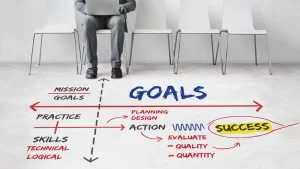Impostor Syndrome?

Impostor Syndrome?
Seeing the growing readership of my last article on LinkedIn last week, I kept thinking – I don’t write often and don’t even have a huge number of followers, so how did this happen? Must be that I just got lucky!!!
And my efforts to understand what was happening more lead me to Impostor Syndrome and its role in our lives 🙂
Impostor syndrome or experience occurs when we have difficulty owning our successes and feel like a fraud – when we feel that our successes are perhaps undeserved, despite all our efforts that have gone into making it a reality. The success or accomplishment is attributed to luck, right time/right place, and other factors outside of ourselves. The bigger the accomplishment, the more intense the feeling of being an impostor.
In my case, despite sincere comments and re-shares from readers showing that it struck a chord with many of them, it took some effort for me to accept that it was real!
Many well known people admit to experiencing it, including Albert Einstein, Emma Watson, Tom Hanks …
Research in different countries indicate the following:
- About 70% population in the US have experienced it at some time in their life – one can imagine other countries would have similar numbers. It is seen to be the most common fear among top executives!
- It affects both men and women, though more women are affected than men
- Men feel the effect of it more than women and women can deal with it better by adapting!
- It can have a crippling effect on an individual, including intense feelings of anxiety, inadequacy, lesser effort and decreased performance overall – even if for short periods of time
- But manage it well, it can propel you further to do even better…
So, next time you wonder – did I really deserve the hike/promotion/… – instead how can you make it work positively?
- Acknowledge it and take comfort in the fact that research shows Competent people tend to underestimate their competence, which, in turn, leaves them more open to improving 🙂 It’s an indicator of the presence of humility – a great attribute for any leader to possess…
- Think about how and when you reward/promote others – it’s because you saw effort/results/potential that they themselves might not be aware of. The same thing is happening to you – others have seen your effort, contribution, or potential that perhaps you have not accepted in yourself! The more senior you are, the less likely you were handed some reward without deserving it.
- If you can, go and ask what was the ONE attribute that made you get that reward/promotion/recognition – that’s your STRENGTH! Accept and build on it to propel yourself forward…
- Use it as a motivator – you get a chance to learn new skills, do something you haven’t done before, and have a larger impact overall. Focus on what you can do to quickly gain confidence to move forward
- And, last but not the least, be sensitive that someone in your team could go thru a similar experience and support them to use it positively…
If you’d like to read more such articles, follow me and see my website: www.coachlumen.com. To partner on a journey of self-awareness and personal growth, thru coaching, please PM me.
This was first published on LinkedIn




